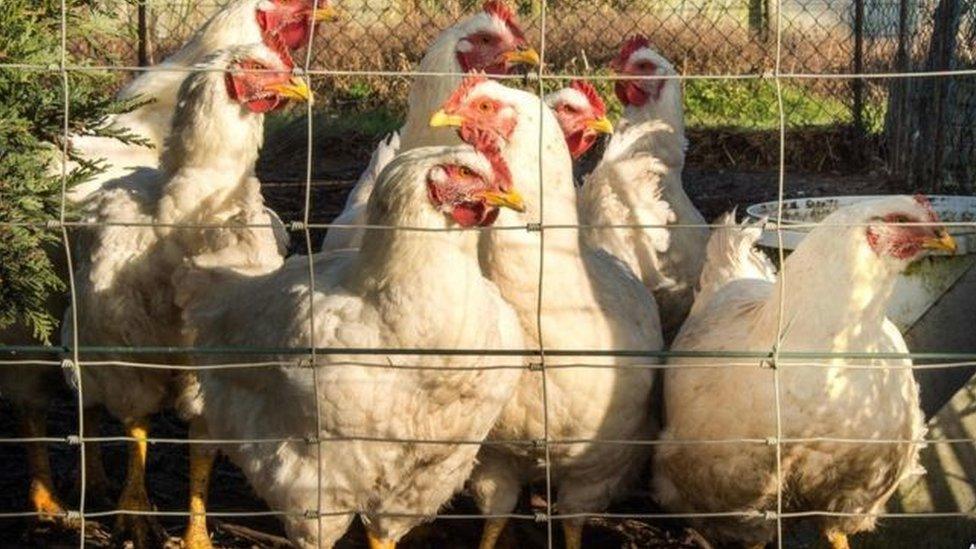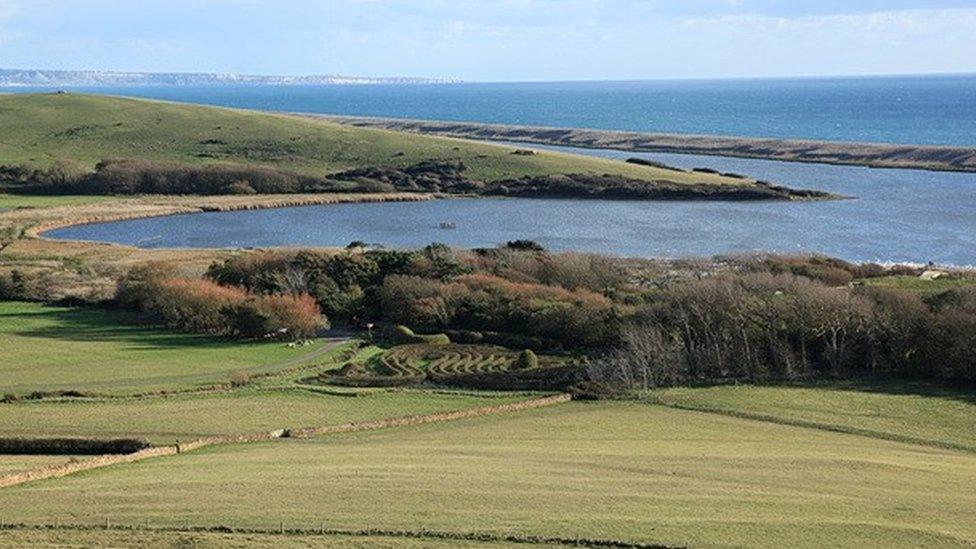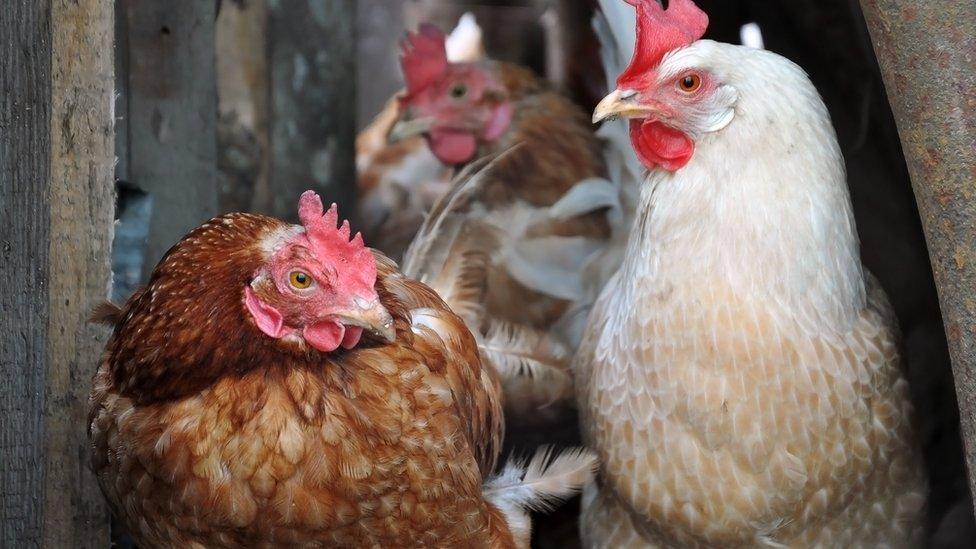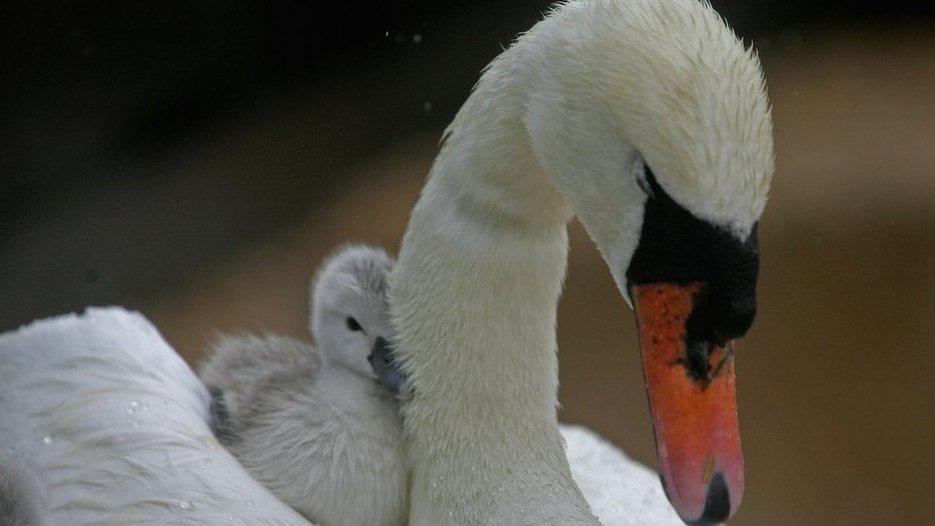Bird flu zone extended as strain discovered in Warwickshire
- Published

Earlier this month 31 infected birds were found to be infected in Dorset
A bird flu prevention zone has been declared across the whole of England as more dead wild birds were found with the virus.
Thirteen wild birds were found dead in Warwickshire and they were confirmed to have the disease.
It follows the discovery of the strain in wild birds in Dorset, where a total of 31 infected birds were identified.
The Food Standards Agency said bird flu does not pose a food safety risk for UK consumers.
The Government's chief veterinary officer, Nigel Gibbens, announced the move. It means all poultry and bird keepers have to follow strict measures to protect their livestock.
In a statement, the Department for Environment Food and Rural Affairs said, external testing of the birds in Warwickshire is ongoing but it is thought they had the H5N6 strain of the virus.
The strain has been circulating in wild populations in Europe in recent months but is a different variant of H5N6 from the one which affected people in China last year.
The prevention zone means keepers must ensure areas where birds are kept do not attract wild birds.
They must also minimise movement in and out of enclosures, clean and disinfect footwear and keep areas where birds live clean and tidy.
The prevention zone does not mean that birds must be kept inside, and there are no plans for movement restrictions or culls.
Prof Gibbens said: "Whether you keep just a few birds or thousands, you are now legally required to meet enhanced biosecurity requirements and this is in your interests to do, to protect your birds from this highly infectious virus."
Keepers with more than 500 birds have to take extra measures including restricting access for non-essential people, changing clothing and footwear before entering bird enclosures and cleaning and disinfecting vehicles.
- Published12 January 2018

- Published12 January 2018

- Published9 January 2017

- Published27 February 2017